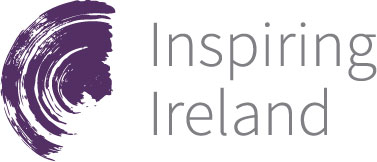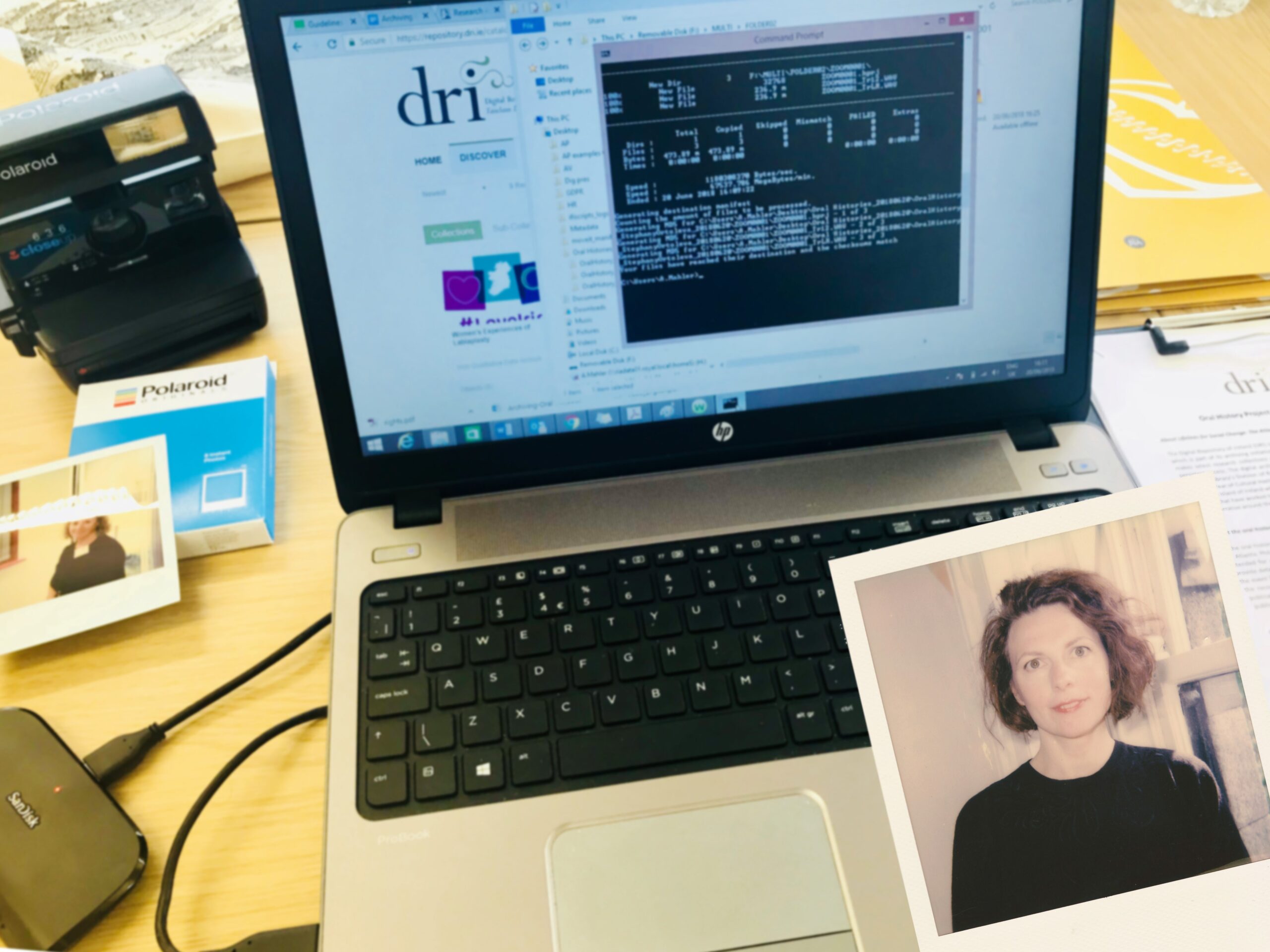Our fifth #DRI10 blog reflects on the exhibition and collections building projects DRI has led, and how these contribute to Repository improvements.
The Digital Repository of Ireland (DRI) was formed ten years ago in September 2011. It was originally funded through a PRTLI (Programme for Research in Third-Level Institutions) Cycle 5 funding grant. In this phase (2011-2015), DRI was built by a research consortium of six academic partners. It was officially launched in June 2015 and continues to be managed by three core academic institutions – Royal Irish Academy, Trinity College Dublin, and Maynooth University. To mark our ten-year anniversary, DRI staff members are writing a blog a week focusing on different DRI milestones achieved over the past ten years. This is the fifth blog in the #DRI10 celebratory blog series.


As a national repository and shared infrastructure, our mandate is to preserve collections deposited by our Members, so most of what we preserve and make accessible comes from existing or historical collections that have been prepared by archives, libraries, organisations, groups, agencies, or other parties. Members choose to share collections for a variety of reasons – these collections are most at risk of loss, or they are in demand by researchers and the public, or they highlight key aspects of that Member’s work and focus. However, DRI also operates as a research centre for best practice, a community hub, and a resource for guidance on metadata, collections management and a wide array of archiving, preservation, and dissemination topics. We are involved in networks and projects that maintain state-of-the-art knowledge in these areas, but one of the best ways to work out the details is to take a hands-on approach to collections building. Over the last ten years, DRI has pursued a number of projects where we build collections or exhibitions from the ground up, always involving collaborations and partnerships, sometimes conducting original research, and always testing out our own guidelines and policies along the way.
The first major exhibition we undertook was the Inspiring Ireland project, which launched as a pilot on St. Patrick’s Day in 2014. Inspiring Ireland is a single portal into items from the collections of eight of Ireland’s national cultural institutions. A series of exhibitions, based on themes loose enough to accommodate complexity and diversity, but focused enough to reflect key themes in Irish culture, were curated by a committee of representatives from each of the institutions. These exhibitions – A Sense of Identity, A Sense of Freedom, and a Sense of Place – appear on a visually compelling website, but are structured, archived and preserved in the Repository. Single portal, multiple collections, pretty front-end, robust preservation back-end.
Inspiring Ireland subsequently launched two more series of exhibitions, one set during the 1916 centenary commemorations, and the other taking a deeper dive into the relationship between Ireland and Wales via the Frongoch prison camp. In these latter two exhibitions, we held public collection days so that objects from private collections could help to enrich the archive of ‘official’, museum-based objects already held by state institutions. Inspiring Ireland in all its iterations was a wonderful experience, and it is possible we could build new exhibitions again in the future.

Our most recent venture into exhibition-building is ‘Amplifying Change: a history of the Atlantic Philanthropies on the island of Ireland‘. For this project, we were approached by the Atlantic Philanthropies in 2016. Chuck Feeney, the founder of Atlantic, was in the process of winding down the organisation, after having given away over $8 billion USD to a wide range of important international projects on education, health, social change, and community building. Ireland was a substantial benefactor of the Atlantic’s grants, and they wanted to ensure that their business archive, which revealed the grants made to Irish organisations, would be more discoverable. Atlantic donated their entire paper archive to Mr Feeney’s alma mater, Cornell University, and wanted us to do something interesting with the Irish portion of that massive multinational archive.

Moved by the breadth and significance of the change supported by the Atlantic Philanthropies on the island of Ireland over the last three decades, we chose to support the work done by grantees by amplifying their voices. Through this project, we collected 40 new oral histories that tell the stories behind the accomplishments of the grantees, and reveal the challenges faced at different moments. These oral histories shed light on the massive steps made in education (such as the establishment of PRTLI and other major investments in higher education), human rights (support for the peace process and LGBTQ+ rights), and across different communities. Combined with digitised key documents from the vast Atlantic archives, our hope is that these new exhibitions provide a rich arena for study over the coming years, as well as motivation to others who may wish to pursue philanthropy. We had a wonderful launch of this project planned at the Royal Irish Academy for 12th March, 2020, but this was the fateful day when everything shifted in Ireland due to the COVID-19 pandemic, so we had to postpone. Thankfully, our wonderful panel of speakers agreed to reassemble for an online celebration in September of that year. A short video gives you a taste of what you’ll find in these exhibitions.
By building these collections, we have not only continued to learn about current archival practices, but we have also contributed solutions – for example, to workflows for archival exchange. In addition, we have built new collections in the DRI that fit with our remit, and complement the tremendous collections that we steward for DRI Members. Inspiring Ireland and Amplifying Change were wonderful journeys that introduced us to tremendous people along the way, and have hopefully provided rich content of lasting value for all audiences.
By DRI Director Natalie Harrower
Images from the top: Kevin Long at the Inspiring Ireland Collection Day 2015; Anja Mahler uploading Oral Histories for Amplifying Change: a history of the Atlantic Philanthropies on the island of Ireland 2020
| Natalie Harrower, Ambassador Dan Mulhall and Caroline McGee at the Irish Embassy in London, 2016, for an Inspiring Ireland 1916 collection day
|
| The project team from DRI, Cornell University Libraries, and the Atlantic Philanthropies at DRI’s first visit to the Cornell archives in 2017
|
| Bláithín NiChathain preparing for oral history interviews at the Cornell archives, 2019 |




